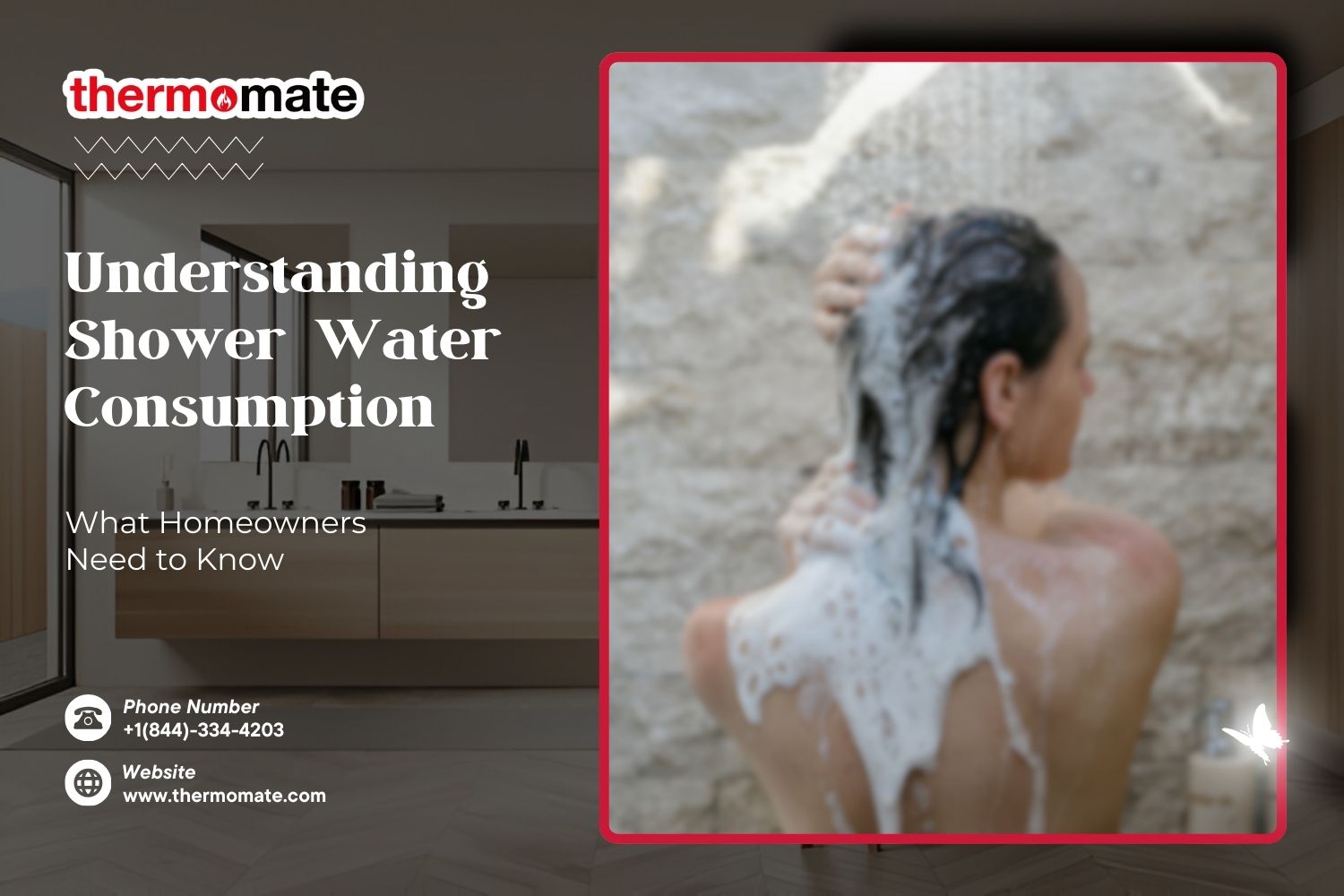--Water usage is a key concern for homeowners interested in energy efficiency and sustainability. Showers, in particular, are significant contributors to household water consumption. Understanding the amount of water used per minute during a shower can help homeowners make informed decisions about their water heaters and overall water usage. This blog post will explore the details of shower water consumption, its implications for electric water heaters, and tips for enhancing water and energy efficiency at home.
How Much Water Does a Shower Use?
The amount of water used per minute during a shower can vary widely depending on several factors, including the type of showerhead, water pressure, and personal habits. On average, a standard showerhead uses about 2.5 gallons of water per minute (GPM). High-efficiency showerheads can reduce this amount to about 2.0 GPM or even lower, while older models might use as much as 3.0 GPM or more.
Calculating Shower Water Consumption
To get a clearer picture of how much water you use in the shower, consider the duration of your showers and the flow rate of your showerhead. For instance, a 10-minute shower with a standard showerhead using 2.5 GPM would consume:
By switching to a high-efficiency showerhead that uses 2.0 GPM, the same 10-minute shower would use:
This simple switch can save a significant amount of water over time, reducing both your water bill and the strain on your water heaters electric.
The Relationship Between Shower Water Usage and Water Heaters
Water heaters are integral to providing hot water for showers, and the amount of water used per minute directly impacts your water heater's efficiency and capacity. Here are a few key points to consider:
-
Water Heater Capacity: Traditional tank water heaters have a fixed capacity, typically ranging from 30 to 80 gallons. If your household takes multiple long showers in quick succession, you might deplete the hot water supply, causing the water heater to work harder to heat additional water. Understanding your shower water consumption can help you to choose a most energy efficient heater.
-
Energy Consumption: Heating water accounts for about 18% of a home's energy use. The more water you use in the shower, the more energy your water heater consumes. By reducing the amount of water used per minute, you can lower your energy bills and reduce your environmental footprint.
-
Recovery Rate: The recovery rate of a water heater is the amount of water it can heat to a specific temperature in a given time. High-efficiency showerheads not only reduce water usage but also ease the demand on your water heater, allowing it to recover more quickly and operate more efficiently.
Tips for Reducing Shower Water Consumption
Here are some practical tips for homeowners looking to reduce their shower water consumption and enhance energy efficiency:
-
Install High-Efficiency Showerheads: As mentioned earlier, high-efficiency showerheads can significantly reduce the amount of water used per minute without compromising on the shower experience. Look for models with the WaterSense label, which indicates they meet strict efficiency criteria set by the Environmental Protection Agency (EPA).
-
Take Shorter Showers: Reducing the length of your showers is a straightforward way to cut water usage. Even cutting back by a few minutes can make a big difference over time.
-
Fix Leaks: A dripping showerhead can waste gallons of water over time. Make sure to fix any leaks promptly to avoid unnecessary water loss.
-
Use a Shower Timer: Consider using a shower timer to keep track of how long you spend in the shower. This can help you become more mindful of your water usage.
-
Upgrade Your Water Heater: If your whole house water heater is old and inefficient, consider upgrading to a newer, more efficient model. Whole House Tankless water heaters, for example, heat water on demand and can be more energy-efficient than traditional tank heaters.
Conclusion
Understanding the amount of water used per minute during a shower is essential for homeowners interested in water heaters and energy efficiency. By being mindful of your water usage and making simple changes like installing high-efficiency showerheads and taking shorter showers, you can significantly reduce your water and energy consumption. These steps not only help lower utility bills but also contribute to conserving vital natural resources. Making informed decisions about your water heater and shower habits can lead to a more sustainable and cost-effective home.

